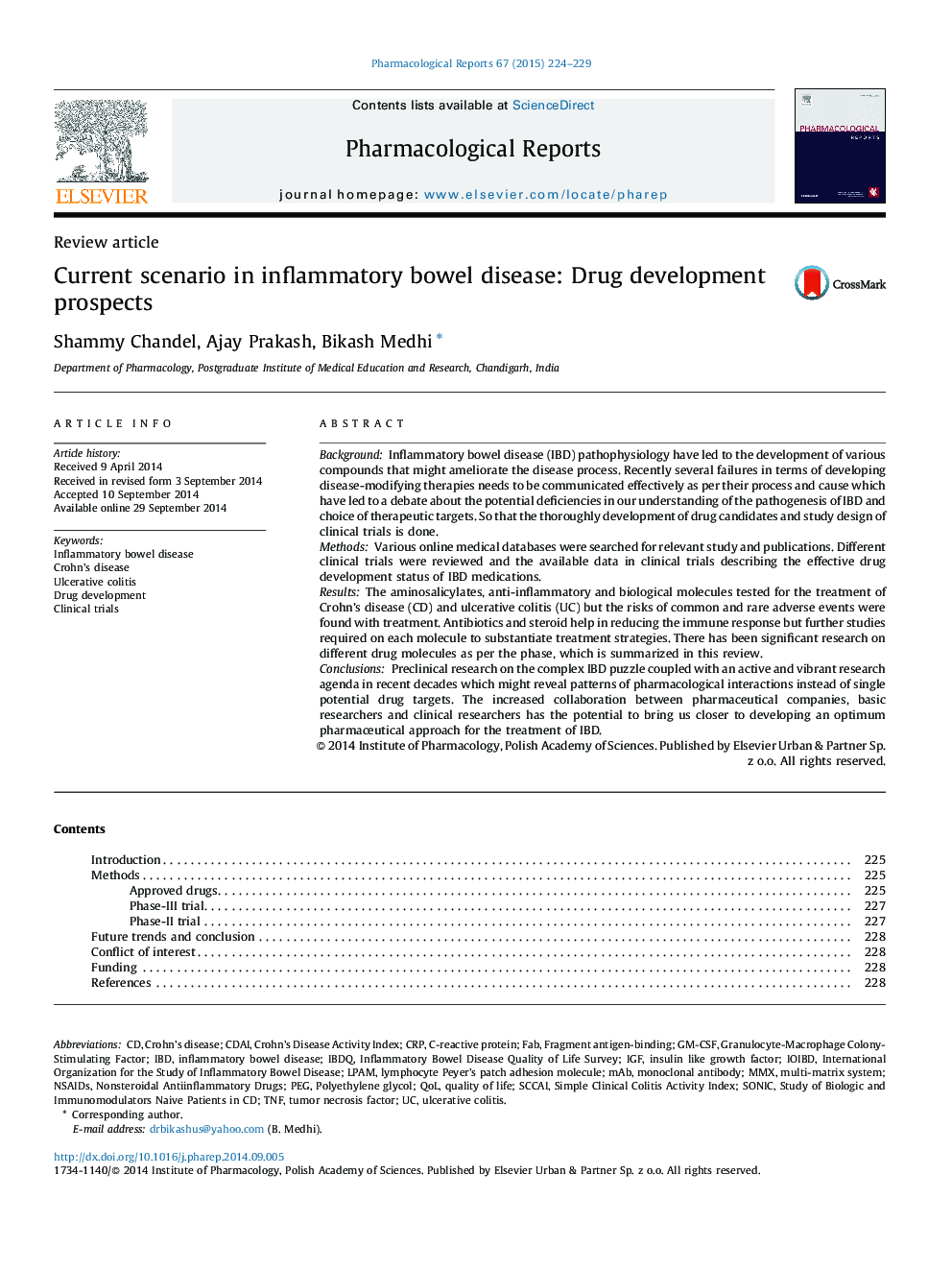| Article ID | Journal | Published Year | Pages | File Type |
|---|---|---|---|---|
| 2011983 | Pharmacological Reports | 2015 | 6 Pages |
BackgroundInflammatory bowel disease (IBD) pathophysiology have led to the development of various compounds that might ameliorate the disease process. Recently several failures in terms of developing disease-modifying therapies needs to be communicated effectively as per their process and cause which have led to a debate about the potential deficiencies in our understanding of the pathogenesis of IBD and choice of therapeutic targets. So that the thoroughly development of drug candidates and study design of clinical trials is done.MethodsVarious online medical databases were searched for relevant study and publications. Different clinical trials were reviewed and the available data in clinical trials describing the effective drug development status of IBD medications.ResultsThe aminosalicylates, anti-inflammatory and biological molecules tested for the treatment of Crohn's disease (CD) and ulcerative colitis (UC) but the risks of common and rare adverse events were found with treatment. Antibiotics and steroid help in reducing the immune response but further studies required on each molecule to substantiate treatment strategies. There has been significant research on different drug molecules as per the phase, which is summarized in this review.ConclusionsPreclinical research on the complex IBD puzzle coupled with an active and vibrant research agenda in recent decades which might reveal patterns of pharmacological interactions instead of single potential drug targets. The increased collaboration between pharmaceutical companies, basic researchers and clinical researchers has the potential to bring us closer to developing an optimum pharmaceutical approach for the treatment of IBD.
